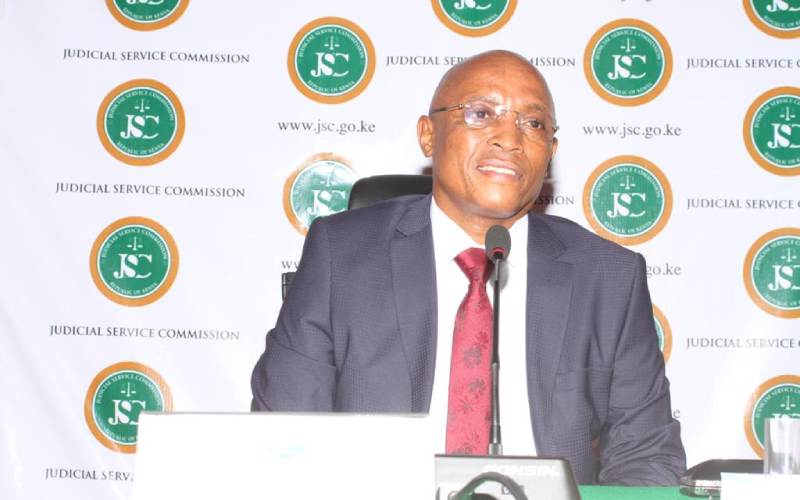×
The Standard e-Paper
Kenya’s Boldest Voice

Employment and Labour Relations Court Judge Justice Matthews Nduma Nderi is being interviewed by the Judicial Service Commission (JSC) for the position of Chief Justice at the Supreme Court.
Justice Nderi was admitted as an Advocate of the High Court in 1988 and holds a Bachelor of Laws degree from the University of Nairobi and a Master of Laws degree in International Trade Law from Stellenbosch University in South Africa.